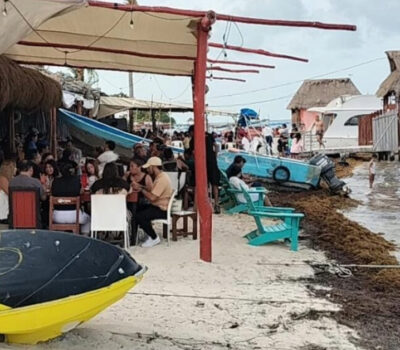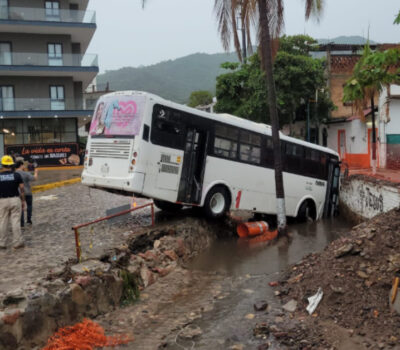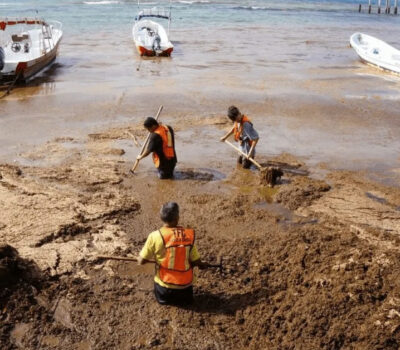Many Americans think they should stay away from investing in the emerging markets for fear they are too risky. However, proper diversification is one of the key tenants to reducing long-term risk in one’s investment portfolio. And the more established emerging markets have made it to “investment grade.”
Take Mexico as an example. Many investors ignore Mexico, as the name conjures up the usual images of drug wars, illegal immigration and poverty often reinforced by the media. Yet, these images are obscuring the bigger picture: fundamental changes that are occurring just south of our border – such as its successful reform efforts, increasing global competitiveness, oil and gas reserves and consumer spending.
Until recently, reform efforts have often failed because of a lack of political will at the top or support from opposition parties in Congress. The new government under President Peña Nieto has collaborated with two main opposition parties to ease the passage of reform laws through Congress.
It is worthwhile to take a look at some of the more significant developments occurring in our neighbor to the south.
1. Structural reforms in Mexico. The Mexican economy still suffers from structural weaknesses that have impeded economic efficiency and longer-term gross domestic product growth. Tax collection is very inefficient, the labor market can be slow to change and the energy sector has been monopolized by the state. Ordinary Mexicans still carry the memories of many past overhauls and privatizations that promised to turn things around but instead created monopolies and stifled economic growth.
After President Nieto took office in 2012, he introduced initiatives to set limits on the state’s longstanding monopoly on the extraction, production and distribution of oil, gas and electricity by allowing private investments. He has reduced the power of the telecommunications giants Telmex (subsidiary of Carlos Slim’s America Movil) and Televisa by opening the door to competition. He also compelled the huge National Union of Education Workers to go with reforms prohibiting the sale or inheritance of teaching positions and introduced compulsory exams to assess teachers.
2. Energy reforms – shaping the future of Mexico. Mexico is the world’s sixth largest crude oil producer, but proven reserves have shrunk from 34 to 14 billion barrels since 1998, and will last for only 10 more years without further improvement. Because of dwindling production and oil accounting for more than 30 percent of its fiscal income, the comprehensive reform of state-run Petróleos Mexicanos (Pemex) was the most pressing issue.
On August 11, President Nieto signed into law energy reform legislation that will open Mexico’s hydrocarbon and electricity sectors to private investors. Energy reforms ended three quarters of a century of state monopoly on hydrocarbons exploration and production.
Through energy reforms, Mexico will be offering private companies production or profit-sharing contracts, as well as licenses, and each will have different tax regimes. The government has an ambitious target of raising the current output of about 2.5 million barrels a day of crude to 3 million by 2018 and 3.5 million by 2025. Reforms will generate a 2 percent GDP boost by 2025, and add about 2.5 million jobs in the same period, according to an article by Diana Villiers Negroponte, nonresident senior fellow for foreign policy at the Brookings Institution.
One of the important results of Mexico’s energy reform is the breakup of the electricity generation and distribution monopoly of Comisión Federal de Electricidad. BBVA Bancomer, the largest financial institution in Mexico, estimates that the change will result in a 40 percent to 50 percent decrease in Mexican electricity costs.
Mexico currently spends about $11.40 for each megawatt hour of electricity for industrial uses, according to the International Energy Agency, while the U.S. spends about $6.60. Other major benefits of reform will include an increase in natural gas supply through a more efficient pipeline from Texas and the development of Mexico’s shale reserves.
Mexico also is benefiting from the shale gas revolution in the U.S., leading to a drop in natural-gas prices for industrial users by 37 percent since 2004. That gives Mexico a significant energy-cost advantage over most other exporting economies. Cheaper Mexican energy further helps domestic firms to become globally competitive.
3. Made in Mexico: Mexico versus China. Mexican exports of electronics increased three times from 2006 to 2013 to $78 billion, according to a report by The Boston Consulting Group. Asian companies such as Sharp, Sony and Samsung have around one-third of investment in Mexican electronics manufacturing put together—compared with only around 8 percent a decade ago. The primary reason is better productivity in Mexico compared to China and similar labor costs as costs soared in China.
In Mexico, the 67 percent rise in average Mexican manufacturing wages from 2004 to 2014 was offset by higher productivity and an 11 percent depreciation of the Peso against the U.S. Dollar. The Mexican workforce also has a strong work ethic, as the average Mexican works more hours per year than people in any other member country of the Organisation for Economic Co-operation and Development, with fewer labor conflicts.
The other factor working in Mexico’s favor is the free-trade agreements the country has with 44 nations, including the North American Free Trade Agreement, which allows its goods to enter the U.S. duty-free.
4. Mexico benefits from U.S. recovery. The U.S. recovery has been a significant boost for Mexico as the U.S. is a key market for the country. The U.S. is the third largest trade partner for Mexico, with exports and imports totaling an estimated $507 billion during 2013 according to the Office of the United States Trade Representative. U.S exports of goods to Mexico totaled $226 billion. U.S. goods imports from Mexico totaled $280 billion.
5. Increase in consumer spending and improvement in fundamentals. With growing incomes, Mexican households have been spending on consumer discretionary more than basic amenities. The changes in ownership of home appliances, automobiles and electronics over the decades show consumption trends.
Mexico has strong tailwinds within emerging markets for three main reasons: 1) the country is closely tied to the expected pickup in U.S. growth; 2) there is no need to talk of the “promise” of reforms, as in Brazil and India – they are already underway in Mexico; and 3) the Peso is not expensive. You may still be skeptical of investing in Mexico, due to all of the negative impressions you take back from the news. But to have absolutely no portfolio allocation in Mexico means you won’t be taking advantage of the long-term growth the country is experiencing. Even the conservative long-term investor should allocate at least a small slice of his or her portfolio pie to “Made in Mexico.”
Many Americans think they should stay away from investing in the emerging markets for fear they are too risky. However, proper diversification is one of . . .











